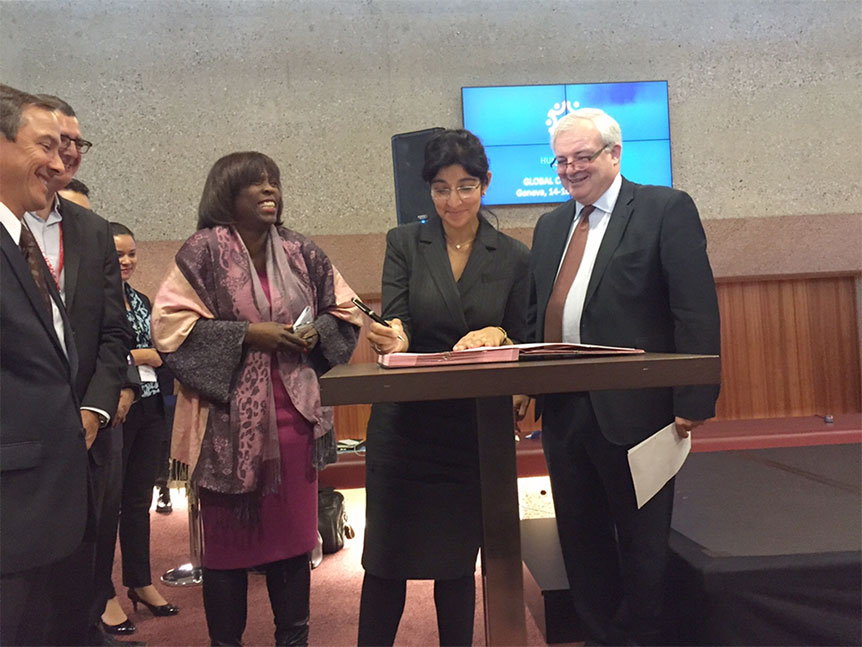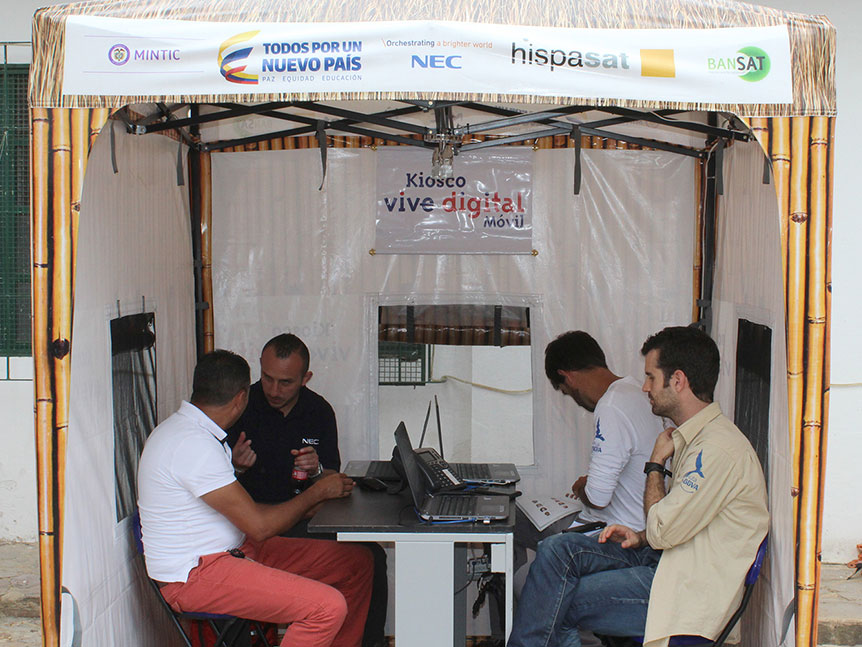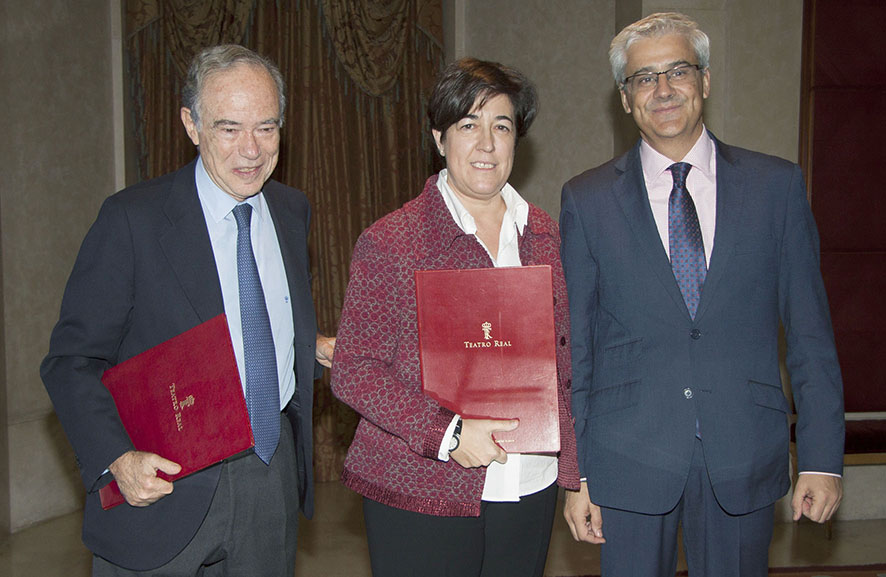
This year HISPASAT continues to move towards Corporate Social Responsibility in line with its goal to achieve business excellence.
The company views sustainability as the ability to produce social and environmental well-being in its surroundings, generate economic value and maintain leadership as one of the key factors supporting satellite operations around the world.
2015 marked the year in which HISPASAT listed its indicators, wrote its first CSR report, which corresponded to the year 2014, and carried out the action plan approved by the Board of Directors in December 2014. HISPASAT has thus taken on social responsibility as a key element in business management and one that is present in strategic and operational decisions for the business.
This plan included 14 actions aimed at identifying company strengths and areas for improvement. It established the starting point from which HISPASAT defined its CSR policy and strategic aims of the social action plan, among others.
By having a CSR policy, the company reaffirms its commitment to carrying out its activity in a sustainable way, promoting the continued improvement of the organisation with this objective in mind and providing services that generate added value for clients and shareholders as well as other interest groups, suppliers, employees, the community, etc.
With these commitments in mind, this year HISPASAT participated in the following projects and initiatives:
AGREEMENT WITH THE UN
In 2015 HISPASAT signed an agreement in which it committed to providing space capacity and terminals to restore communications in natural disasters or emergencies. It thereby assists in the rescue and reconstruction tasks carried out by the Office for the Coordination of Humanitarian Affairs (OCHA), the United Nations agency in charge of coordinating humanitarian aid.
The agreement, which was prepared by the ESOA (EMEA Satellite Operators Association) and GVF (Global VSAT Forum), guarantees that HISPASAT and the other participating operators will provide full operating capacity through their satellite networks, based on their availability, to reception points. The solution also includes ground equipment and reception terminals.
Moreover, operators will offer the necessary training to first response coordinators in order to enable them to successfully apply the communications solutions.
Satellite communications provide solutions that are unaffected by natural disasters and are completely independent from terrestrial infrastructures, meaning that in some humanitarian crises they are the only viable option to restore communications. In 2005, the HISPASAT Group collaborated with the United States by providing emergency communications in New Orleans via its Amazonas 1 satellite after the catastrophe caused by Hurricane Katrina.
Kiosko Vive Digital in Colombia
HISPASAT, along with NEC Colombia, provides satellite connectivity in seven Colombian provinces through the initiative Kiosco Vive Digital, which is promoted by the Ministry of Information and Communication Technology.
In December 2013, HISPASAT and NEC won the MinTIC bid to install, operate and manage 648 digital Kioscos in seven departments in the country, as part of the second stage of the Kiosco Vive Digital initiative. Its objective is to ensure that 100% of towns with over 100 inhabitants in Colombia have at least one communal Internet access point. Since then, the Amazonas, Boyacá, Caldas, Cundinamarca, Guainía, Risaralda and Vaupés departments have been given access to the Internet, national and international telephone services, computer literacy and e-government, among others.
10K NETWORK IN MEXICO
In 2015, HISPASAT and Globalsat began to provide connectivity to more than 8,700 public spaces in rural and remote areas of Mexico. This number encompasses three of the four areas that form part of the 10K network, an initiative of the México Conectado project, which was set up by the Secretariat of Communications and Transport (SCT). This network aims to provide Internet access to more than 10,000 schools, health centres, libraries, community centres and other public facilities in Mexico located in towns and villages that do not have broadband connectivity.
Agreement with the Teatro Real
In support of spreading the work of Spain’s cultural institutions, HISPASAT signed a collaboration agreement with the Teatro Real in 2015 to provide space capacity to the live satellite broadcast of a maximum of ten performances per year. The agreement will also allow these performances to be shown in theatres around the world thanks to satellite broadcasting.
ESTUDIANTES FOUNDATION
In 2015 HISPASAT collaborated with Estudiantes Foundation and 2nd EstuCamp, a bilingual training camp for young wheelchair basketball players, with the aim of perfecting both the players’ sports skills and their English, and helping them to overcome barriers and live a full and independent life.
HISPASAT sponsored all 40 scholarships to attend the camp, as well as a portion of the camp’s management and organizational costs. The Spanish operator sees a number of points in common with the camp’s core principles, both in terms of its own business activities, an important part of which is sports broadcasting, as well as the values of honesty, commitment and teamwork, which are inherent to sports. Moreover, HISPASAT believes that the social inclusion and training efforts carried out by Estucamp are critical.
SOLIDARITY SPONSORSHIPS
This year, HISPASAT continued to collaborate with UNICEF Spain’s “Multiplica por la Infancia” (Multiply for the Children) Project and Gavi’s “Business Alliance for Child Vaccination”.
It also collaborated with Acnur by making a donation to the “Emergency Mediterráneo/Syria” programm; and with a charity run, organised by Fundación Créate were donated to encourage entrepreneurship in Spain’s education centres.



